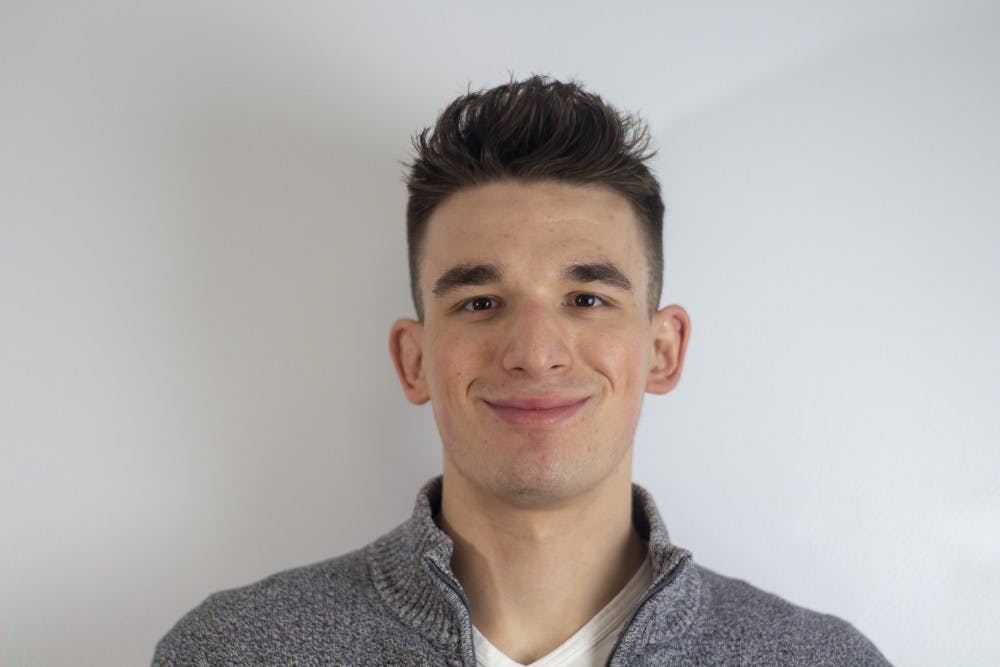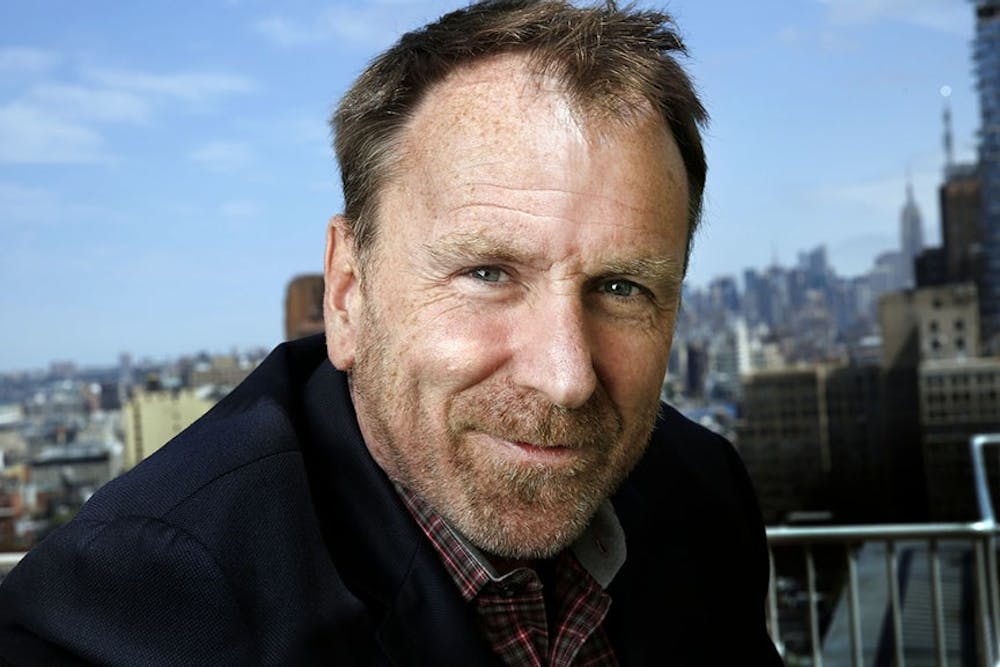Behind and in front of the camera, Colin Quinn finds resonance in all forms of comedy.
Whether it’s starring in one-man shows on Broadway directed by friend and fellow comic Jerry Seinfeld or his tenure as a writer for “Saturday Night Live,” the comedian brings experience and influence that have helped span a 30-year career.
Quinn spoke with The Spectrum about his “One in Every Crowd” stand-up tour, experiences working the comedy circuit and his upcoming shows at Buffalo’s Helium Comedy Club on April 26-28.
Q: As a writer for “SNL” and later a cast member, how do you compare the behind-the-scenes work with on-screen roles? Is it hard to switch between the two?
A: A lot of people switch. They do switch over the years, you know. [“Saturday Night Live”] is not as hard as other places probably, because they do tend to allow that more. It’s definitely one of those things that sort of [uses] two different muscles. I feel like writing there really teaches people a lot, you know. It teaches you almost more than performing. The good thing is you have to perform in front of everybody all the time, every week. There’s a whole crowd of people listening to your stuff, so you get to live in a reality where you say, “Oh, that joke doesn’t work” and vice versa.
Q: Being your first tour in seven years, do you have any reservations toward stand-up? How do you think the industry has changed? Is there a clearer line that separates the acceptable versus the taboo?
A: There is never a clear line, and that’s part of the good thing about comedy. There’s never a line. How you say it is how the line is taken, you know what I mean? There is definitely more sensitivity in a certain way. Obviously, people are more cautious and careful about what they say and all that stuff, which is annoying. ... In the grand scheme of things, you still have to find a way to say what you feel like saying.
Q: Spontaneity works in your favor with the majority of your work. Does this attribute cross over to your writing? Is there a clear distinction between being funny in conversation versus writing for television or writing jokes for a television show?
A: Yeah, but what you said is exactly right. The spontaneity kills me half the time because I’ll start to write something and then suddenly I’m onto something else and I end up all screwed up, you know. I am sitting there with papers that have nothing to do with anything, and they’re sort of just thrown in there as extra jokes. It is a bit of a nightmare honestly. I end up with all of these different things, and I just can’t help but think what happened.
Q: Does the majority of your material originate from personal experience, or has your way of accumulating material changed over the years or even from tour to tour?
A: I would say number two more because the subject, your personal experience becomes hard. It’s almost like you don’t live a wild enough life after a certain age where personal experience is very pedestrian compared to when you’re younger. The focus has to be more on the bigger picture.
Q: Jerry Seinfeld has labeled you as the quintessential New York comedian. Do you find more of an influence in your work from your surroundings in New York, or is there more of a connection to your specific upbringing and roots?
A: Yeah, but now New York is no longer New York in my opinion. It’s really not the same thing. It’s more of a look back.
Q: If you look at someone like Donald Trump who people see as a typical New Yorker, do you consider that an accurate representation after his ascension to the presidency?
A: I mean he’s definitely a type of a bragging, builder-type guy. I can’t say he’s not a certain type of personality, but he’s definitely a guy who thinks he’s more of a straight shooter than he really is. He’s a guy that prides himself on telling it like it is, where it’s only according to what you think it is.
Q: How do you think the comedy world can continue to make better space for women in more prominent shows like “SNL?” Have you seen any changes in either direction?
A: Well, of course it’s a guy-dominated field. There [are] two ways that happens. Obviously, more women have to want to do it. In terms of “SNL,” it is pretty well represented I think, but it’s always going to be one of those conflicts because you’re like, “Yes, you need to have more women,” you know, women doing what they do. Guys and women will want different things in their comedy, and I feel like that’s fine and it’s natural. It’s really about finding that line between equity and equality and also realizing that people do have different takes on life.
Q: You recently wrapped up two one-man shows, one on and one off Broadway. What is your focus on this current tour? Is it easy to transition from a one-man Broadway show back to stand-up, or is it a more extensive process?
A: Well, you said I’m transitioning so I hope that stays in the article. I mean, it’s hard to say because it’s all so similar to me and it’s more of a label that people put it as a one-man show. It’s the same to me. It’s all stand up to me except that maybe I’m keeping it more thematic during the one-man shows. It’s all the same thing –– trying to figure things out, trying to make jokes about subjects and themes that seem to occur in life.
Q: What are your thoughts on your upcoming shows in Buffalo? How did you go about picking dates and venues for this tour?
A: Well, it’s more coordinating with my agent and my manager. Then, with Buffalo, I like the Helium Club. I like their club. It becomes, “Yeah, I want to play that club.” Some clubs I want to do just because I’m comfortable in that place, and I like the vibe when I’m there.
Brian Evans is the asst. arts editor and can be reached at brian.evans@ubspectrum.com and @BrianEvansSpec.
Brian Evans is a senior English major and The Spectrum's senior arts editor.






